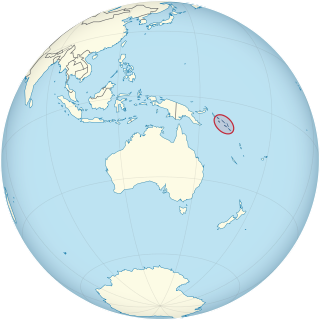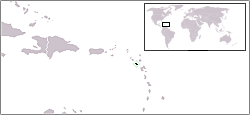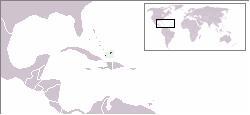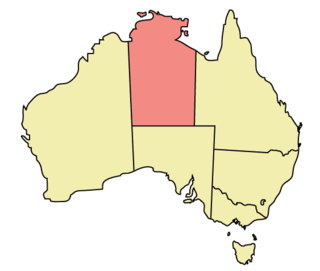
The rights of lesbian, gay, bisexual, and transgender (LGBTQ) people in the United Kingdom of Great Britain and Northern Ireland have developed significantly over time. Today, lesbian, gay and bisexual rights are considered to be advanced by international standards.

Lesbian, gay, bisexual, transgender and queer (LGBTQ) rights in Australia rank among the highest in the world; having significantly advanced over the latter half of the 20th century and early 21st century. Opinion polls and the Australian Marriage Law Postal Survey indicate widespread popular support for same-sex marriage within the nation. Australia in 2018, in fact was the last of the Five Eyes set of countries - that consisted of namely Canada (2005), New Zealand (2013), United Kingdom (2014) and the United States (2015) to legalize same-sex marriage. A 2013 Pew Research poll found that 79% of Australians agreed that homosexuality should be accepted by society, making it the fifth-most supportive country surveyed in the world. With its long history of LGBTQ activism and annual Gay and Lesbian Mardi Gras festival, Sydney has been named one of the most gay-friendly cities in the world.

Lesbian, gay, bisexual, and transgender (LGBT) rights in the British Crown dependency of the Isle of Man have evolved substantially since the early 2000s. Private and consensual acts of male homosexuality on the island were decriminalised in 1992. LGBTQ rights have been extended and recognised in law since then, such as an equal age of consent (2006), employment protection from discrimination (2006), gender identity recognition (2009), the right to enter into a civil partnership (2011), the right to adopt children (2011) and the right to enter into a civil marriage (2016).

Lesbian, gay, bisexual, and transgender (LGBT) people in Solomon Islands face legal challenges not experienced by non-LGBTQ residents. Male same-sex sexual activity is illegal, punishable by up to 14 years imprisonment, but the law is not enforced.

Lesbian, gay, bisexual and transgender (LGBT) rights have evolved significantly in the past decades in the British Overseas Territory of Gibraltar. Same-sex sexual activity has been legal since 1993 and the age of consent was equalised to 16 in 2012. The Supreme Court of Gibraltar ruled in April 2013 that same-sex couples have the right to adopt. Civil partnerships have been available to both same-sex and opposite-sex couples since March 2014, and in October 2016, Gibraltar voted to legalise same-sex marriage with the Civil Marriage Amendment Act 2016 passing unanimously in Parliament. The law received royal assent on 1 November and took effect on 15 December 2016.

A sodomy law is a law that defines certain sexual acts as crimes. The precise sexual acts meant by the term sodomy are rarely spelled out in the law, but are typically understood and defined by many courts and jurisdictions to include any or all forms of sexual acts that are illegal, illicit, unlawful, unnatural and immoral. Sodomy typically includes anal sex, oral sex, manual sex, and bestiality. In practice, sodomy laws have rarely been enforced to target against sexual activities between individuals of the opposite sex, and have mostly been used to target against sexual activities between individuals of the same sex.

Lesbian, gay, bisexual, and transgender (LGBT) people in Bermuda, a British Overseas Territory, face legal challenges not experienced by non-LGBT residents. Homosexuality is legal in Bermuda, but the territory has long held a reputation for being homophobic and intolerant. Since 2013, the Human Rights Act has prohibited discrimination on the basis of sexual orientation.

LGBTQ+ rights in the Cayman Islands are regarded as some of the most progressive in the Caribbean. While the British territory still has a long way to go, it continues to relax its stance on this subject. Both male and female types of same-sex sexual activity are legal in the Cayman Islands. Same-sex unions became legal in 2020.

Lesbian, gay, bisexual, and transgender (LGBT) persons in Montserrat face legal challenges not experienced by non-LGBTQ residents. Same-sex sexual activity has been legal in Montserrat since 2001.

Lesbian, gay, bisexual, and transgender (LGBT) persons in the British Overseas Territory of the Turks and Caicos Islands face legal challenges not experienced by non-LGBTQ residents. Same-sex sexual activity has been legal in the Turks and Caicos Islands since 2001, and discrimination based on sexual orientation is constitutionally banned.

Lesbian, gay, bisexual, and transgender (LGBT) people in the British Overseas Territory of the Falkland Islands enjoy most of the same rights as non-LGBT people. Marriage and civil partnerships have been open to both opposite-sex and same-sex couples since 29 April 2017. Discrimination on the basis of sexual orientation is constitutionally banned. Additionally, attitudes are largely positive; a public consultation found that 90% of respondents were in favour of same-sex marriage.

The majority of the countries of the Commonwealth of Nations, formerly known as the British Commonwealth, still criminalise sexual acts between consenting adults of the same sex and other forms of sexual orientation, gender identity and expression. Homosexual activity remains a criminal offence in 29 of the 56 sovereign states of the Commonwealth; and legal in only 26.

Lesbian, gay, bisexual, and transgender (LGBT) rights in the British Crown dependency of Guernsey have improved significantly in the past decades. Same-sex sexual activity for both men and women is legal in Guernsey. Same-sex marriage has been legal since 2 May 2017 in Guernsey, and since 14 June 2018 in its dependency, Alderney. Legislation approving the legalisation of same-sex marriage in its other dependency, Sark was given royal assent on 11 March 2020. Guernsey is the only part of the British Isles to have never enacted civil partnership legislation, though civil partnerships performed in the United Kingdom were recognised for succession purposes. Since April 2017, same-sex couples can adopt in the entire Bailiwick. Discrimination based on sexual orientation and gender identity has been banned since 2004. Transgender people have been able to legally change gender since 2007.

Lesbian, gay, bisexual, and transgender (LGBT) people in Australia's Northern Territory have the same legal rights as non-LGBT people. The liberalisation of the rights of lesbian, gay, bisexual and transgender (LGBTQ) people in Australia's Northern Territory has been a gradual process. Homosexual activity was legalised in 1983, with an equal age of consent since 2003. Same-sex couples are recognised as de facto relationships. There was no local civil union or domestic partnership registration scheme before the introduction of nationwide same-sex marriage in December 2017, following the passage of the Marriage Amendment Act 2017 by the Australian Parliament. The 2017 Australian Marriage Law Postal Survey, designed to gauge public support for same-sex marriage in Australia, returned a 60.6% "Yes" response in the territory. LGBT people are protected from discrimination by both territory and federal law, though the territory's hate crime law does not cover sexual orientation or gender identity. The territory was the last jurisdiction in Australia to legally allow same-sex couples to adopt children.

Lesbian, gay, bisexual, and transgender (LGBTQ) rights in the British Crown dependency of Jersey have evolved significantly since the early 1990s. Same-sex sexual activity was decriminalised in 1990. Since then, LGBTQ people have been given many more rights equal to that of heterosexuals, such as an equal age of consent (2006), the right to change legal gender for transgender people (2010), the right to enter into civil partnerships (2012), the right to adopt children (2012) and very broad anti-discrimination and legal protections on the basis of "sexual orientation, gender reassignment and intersex status" (2015). Jersey is the only British territory that explicitly includes "intersex status" within anti-discrimination laws. Same-sex marriage has been legal in Jersey since 1 July 2018.

In the U.S. Virgin Islands, Lesbian, gay, bisexual, and transgender (LGBT) rights have evolved substantially in recent years. Same-sex sexual activity has been legal since 1985. The region also provides explicit legal protections against discrimination for LGBTQ residents since December 2022. Following the Supreme Court's ruling in Obergefell v. Hodges on June 26, 2015, which found the denial of marriage rights to same-sex couples unconstitutional, same-sex marriage became legal in the islands.

Lesbian, gay, bisexual, and transgender (LGBT) persons in the British Overseas Territory of Akrotiri and Dhekelia enjoy most of the same rights as non-LGBT people.

Lesbian, gay, bisexual, and transgender (LGBT) people in the British Overseas Territory of the Pitcairn Islands enjoy most of the same rights as non-LGBT people. Same-sex sexual activity is legal, discrimination based on sexual orientation is constitutionally outlawed and same-sex marriage has been legal since 14 May 2015.

Among the fourteen British Overseas Territories, eight – Akrotiri and Dhekelia, the British Antarctic Territory, the British Indian Ocean Territory, the Falkland Islands, Gibraltar, the Pitcairn Islands, Saint Helena, Ascension and Tristan da Cunha, and South Georgia and the South Sandwich Islands – recognise and perform same-sex marriages. In the Sovereign Base Areas of Akrotiri and Dhekelia, only British military and civilian personnel can enter into same-sex marriages and civil partnerships.

Lesbian, gay, bisexual, and transgender (LGBT) persons in Anguilla face legal challenges not experienced by non-LGBTQ residents. Same-sex sexual activity is legal in Anguilla, but same-sex couples cannot marry or obtain civil partnerships. Anguillian law does not forbid discrimination based on sexual orientation or gender identity.






















